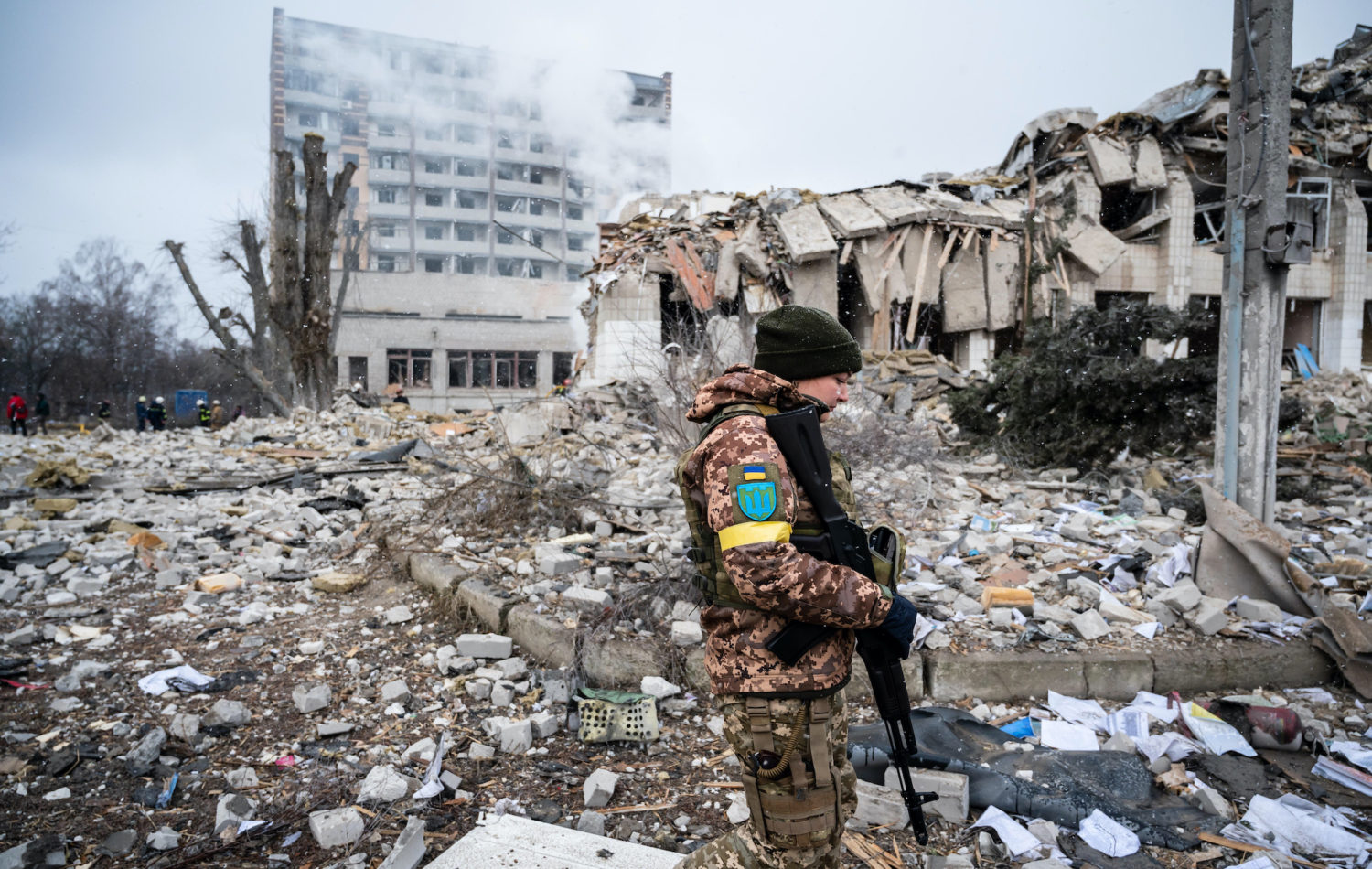The era of threat
War in Ukraine has supercharged global challenges. Peter Apps explains.
As Britain’s political and media classes obsessed over Boris Johnson’s parties during lockdown in the first weeks of 2022, the largest invasion force assembled in Europe since 1945 was moving into position in plain sight as Vladimir Putin prepared for war.
The bloody conflict we have all seen unfold since has unleashed scenes across Ukraine that most in Europe hoped had been banished three quarters of a century ago. The first, second and third order consequences are only just beginning: appalling suffering and death in Ukraine, Europe’s worst refugee crisis since 1945 and what the World Bank has warned is a ‘global economic catastrophe’ to follow from rising food and fuel prices.
The latter is already hitting every family and citizen in Britain, particularly the poorest, dramatically exacerbating an already accelerating cost of living crisis that requires much greater domestic government response. But what is unfolding in Ukraine also represents a dramatic escalation of a number of other global trends and challenges that were already alarming to begin with.
Labour has been robust on the Ukraine conflict, with Shadow Foreign Secretary David Lammy and Shadow Defence Secretary John Healey visiting Kyiv in January, Keir Starmer pushing for eventual war crimes trials and Labour ahead of the curve in calling for harder and faster sanctions.
But the party will also need to address the bigger issues – including a worsening global human rights crisis fuelled by advancing authoritarianism, an urgent need to tackle UK and international overreliance on certain sources of fuel and food and a global inequitable redistribution of wealth and power of which Putin’s oligarchs are amongst the grossest examples.
Bashing Boris Johnson and his party for getting far too close to individuals like Evgeny Lebedev is clearly good politics – although some Labour hands are also not entirely clean in that regard. Being a government in waiting at such a dangerous time, however, will take more than highlighting Conservative failings. When Labour was elected in 1945, it was for its social programme, but voters also trusted it to handle the enormous challenges of the post-war world.
If there was ever a belief that those challenges had eased with the fall of the Berlin Wall, recent years have been a stark reminder that they have now returned in earnest.
The 11 years since the so-called Arab spring have already seen an unmistakable shift towards more brutal, authoritarian methods of control and intimidation by a host of autocratic governments, with Vladimir Putin in Russia and China’s Xi Jinping dramatically cracking down on opposition, freedom of speech and the hallmarks of a pluralistic society.
In Russia, this crackdown has dramatically escalated further after the invasion, with media access dramatically curtailed for ordinary Russians and state-owned platforms pushing relentless coverage of war and warnings over the new heightened penalties for dissent – even if, for now at least, this has not prevented thousands of brave Russians from protesting.
Russia’s use of heavy weaponry against civilian areas is the latest horror in a growing list of examples of nations and leaders turning to force, repression or the threat of both. Others include China’s increasingly unambiguous threats towards Taiwan, the internment of well over a million ethnic Muslim Uyghurs by Beijing, the Saudi war in Yemen and murder of journalist Jamal Khashoggi and Ethiopia’s increasingly brutal campaign in Tigray
Tackling each of these will require a different toolkit. With its actions in Ukraine, Russia has put itself almost beyond redemption under its current leadership. It is important to retain dialogue with others including China and the Gulf states in particular. But we need to be clear on our values and our limits, and that wars of aggression, genocide and mass killings of civilians will always have consequences, both real and serious.
Some of this, of course, marks a return to the kind of ‘ethical foreign policy’ Robin Cook talked about in the early days after 1997. What is at least as important now, however, is a broad and positive plan for the future, which both defends the very idea of liberal democracy and hardens our defences and limits our dependence on those who wish us or others harm.
Even without the realities of climate change, weaning us and other Western states off hydrocarbons would dramatically reset the power balance between us and those in Moscow or the Gulf who might kill or intimidate journalists, target civilians indiscriminately or use unacceptable means to control dissent at home.
Working with long-established and new partners and allies in Europe, North America and beyond is clearly an imperative in this new era of threat. But as well as military, diplomatic and humanitarian coordination, we should be looking at the reform of global tax and business with the opening clear priority of stopping the wealth gap growing ever wider.
None of this is easy, even for an unashamedly progressive, pluralist and internationalist party like ours. But we cannot afford not to think of these issues. As events in Ukraine are showing, the results of getting this wrong are catastrophic.
Image credit: Depositphotos/Fotoreserg

